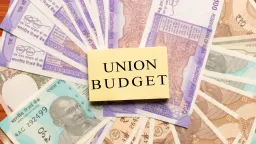Cryptocurrency terms you must know

The cryptocurrency world, like any other asset, is full of terminologies that beginners may be unfamiliar with. Crypto enthusiasts like to discuss such terms in online forums, and coming across them may cause confusion. We are here to help you avoid confusion and become acquainted with cryptocurrency terms.
Cryptocurrency terms
Follow is the list of cryptocurrency terms one must know:
Mining
Mining is extremely important in cryptocurrency. It is a method of creating and circulating more cryptocurrency. In other words, it is a method of “minting” money.
Transactions are also verified and added to the blockchain here. Through the mining process, one can earn cryptocurrency without having to spend any money on purchasing it. Miners can earn a large number of mining currencies.
Asic Miner
It is a method of mining currencies that is simpler and faster than any standard laptop or desktop.
ASIC is an abbreviation for Application Specific Integrated Circuit. It is simply a chip designed to perform a single task.
This single task could range from solving mathematical problems to processing any other process. Although, in recent years, coins have been designed in such a way that they can be mined using an ASIC.
Block Chain
The blockchain is a data system that allows for the creation of digital ledgers. It enables the creation of a non-centralized digital ledger of transactions.
It stores immutable data in the form of blocks digitally. Cryptography is used to protect and enable the network. Cryptography enables users to interact with the ledger. Blockchain continues to grow as new records and data are added for everyone to see.
Block
These are vital ledger pages where network-related data is permanently stored. We are unable to change the data stored in the block. As a result, blocks are essentially files that store unaltered data.
Block Height
The genesis block is the first block of the chain. The number of blocks preceding the genesis block on the chain is referred to as block height. However, because nothing comes before the genesis block, its height will always be zero.
The question now is, what is the significance of block height? Assume a bitcoin is mined every ten minutes. Then, using the block height, we can determine some time-related importance.
Block Reward
A block reward is a reward given for solving a mathematical problem related to a block or for hashing. A reward is given to the miner for mining a new block.
The reward is in the form of a block, which means they receive a specific amount of coin base. Bitcoin miners are rewarded with 12.5 bitcoins or approximately $150000 for mining a new block.
The block reward was 50 bitcoins when bitcoin was first created, and it is now 12.5 bitcoins. After every 210000 blocks, the reward is halved.
This is in accordance with the price demand theory in order to keep bitcoin prices rising.
Address
Cryptocurrencies, like us, have a physical address. Essentially, it is the location from which one can send, receive, or hold the currency. These are long alphanumeric character strings.
They will look like this A123efhgloe343hsagd. This was concerning the currency address. A wallet address is also required for a currency holder to verify or accept the transaction.
Node
A node is a computer that is linked to a bitcoin network. It helps the network by validating and relaying transactions, and it also receives a full copy of the blockchain. There are three options for participation.
The Light Client is the first. Participation is possible by retaining a thin copy of the blockchain. The Full Node comes next.
A full node participates by maintaining a complete copy of a blockchain. The final way to participate is by verifying transactions, which is known as mining.
P2P
P2P stands for peer to peer. This means that it will function as a computer networking architecture, with each peer acting as a server for others.
Every peer will be treated equally. It allows for direct interaction between individuals and eliminates the need for a middleman, making these transactions easier and faster by decentralising the blockchain. Because of its simplicity and speed, peer-to-peer appears to be a natural fit for blockchain.
Distributed and Central ledger
A distributed ledger is a contract that allows data to be shared, replicated, and synchronised across multiple networks and CPUs.
A central ledger, unlike a distributed ledger, is synchronised and replicates data but is controlled by a single network or individual.
Confirmation
It is the network’s verification of the blockchain transaction. A confirmed transaction cannot be reversed.
Bitcoin
We’ve all heard of bitcoin. To begin with, Satoshi Nakamoto created the first cryptocurrency in 2009. However, bitcoins are much more than that.
Bitcoin is a cryptocurrency, which is a digital resource designed to function as a medium of exchange that uses cryptography to control its creation and management rather than relying on central authorities like other forms of currency.
In layman’s terms, bitcoin is a digital currency. There are no bills to print or coins to mint. It is decentralised, and no government, institution (such as a bank), or other authority controls it. Bitcoin’s owners are anonymous, and it connects buyers and sellers via encryption keys. And, unlike traditional currencies, it is not issued from the top down; rather, bitcoins are mined by powerful computers connected to the internet.
Altcoin
Altcoin refers to any cryptocurrency other than bitcoin. It is a form of alternative currency. It was launched using a technique known as faucet. There are numerous altcoins, many of which are performing well as an investment asset class.
Whitepaper
It is a document that contains all of the cryptocurrency’s protocols.
HODL
In the cryptocurrency world, hodl is used instead of hold. This means that you should not sell or buy the currency, but rather hold it for a set period of time until a buy or sell signal appears. Someone made a typo, and since then, hodl has been used instead of hold.
FOMO & FUD
FOMO refers to the fear of missing out on rewarding experiences that others may have had. FUD is an acronym that stands for Fear, Uncertainty, and Doubt. These are deliberately spread out to reduce the value of a currency. People begin to sell a coin based on rumours and speculations.
SATOSHI
Satoshi, named after the inventor of bitcoin, is the smallest amount of cryptocurrency that can be used for transactions.
It is roughly 0.00000001 Bitcoin.
EXCHANGES
Exchanges act as middlemen, transferring money and cryptocurrency between users and networks. These are centralised organisations.
WALLETS
Cryptocurrency addresses are digital addresses where cryptocurrencies are stored, sent, or received. It is only accessible with the private key. Wallets are classified into two types: software wallets and hardware wallets.
Software wallets store cryptocurrencies as software files on computers, whereas hardware wallets are devices that securely store cryptocurrencies.
The paper wallet is a different type of wallet. These wallets keep altcoin as a physical piece of paper printout.
Initial Coin Offering
We’ve all heard of an IPO (Initial Public Offering). An ICO, like an IPO, provides new coins to investors.
If a cryptocurrency project needs funds for any reason, it will offer a coin to the public at a set price via an ICO.
Dust transactions
These transactions occupy blockchain space for a small amount of bitcoin. It involves the purchase or sale of a small amount of cryptocurrency.
Smart Contract
A smart contract is analogous to a traditional contract. It is an unaltered agreement with a specific set of operations that is stored on a blockchain. Once signed, a smart contract cannot be changed.
These are the standards that must be met when money is transferred or certain things, such as land rights, are verified. These are coded and self-executing transactions that control the flow of money.
Fork
The fork is a method of changing cryptocurrency software in order to create two versions of the blockchain with a shared history. It is a constant divergence from the current blockchain because it creates an alternate version of it.
The existence of a fork is dependent on events such as a 51% attack or a bug in the programme. You’re probably wondering what a 51% attack is, but don’t worry, we’ll be facing one soon.
The fork also occurs when the coin’s developers create and insert significant changes into the system. The height of the block will determine its success.
51% Attack
When a single person or group controls more than half of the computing power on a network, this is referred to as a 51% attack. This gives the individual or group complete command of the network.
Orphan Block
Although it is no longer a part of the blockchain, it was once a part of the fork but has since been removed.
Hard & soft Fork
By altering the block structure, a hard fork alters the difficulty rules of bitcoin. A protocol change can render a previously valid block invalid, and vice versa.
The soft fork, on the other hand, modifies the software protocol of previously valid blocks or transactions, rendering them invalid.
Because new blocks are recognised as valid, a soft fork is backward-compatible.
Margin Trading
Margin trading also allows you to increase the magnitude of your trade. It is a risky proposition because it raises the trade’s risk. It’s similar to taking out a loan to invest.
Because risk and return are combined, this trading will result in a higher return.
Bullish Expectations
When investors expect prices to rise in the near future, their sentiments turn bullish. Bullish expectations can be for a single day, if a trader is trading intraday, or they can be for a longer period of time.
Bearish Expectations
Similarly, when investors expect prices to fall in the near future, they become bearish.
Mooning
Mooning occurs when the value of a currency fluctuates dramatically.
Whale
When an individual or group owns a large amount of cryptocurrency, they are referred to as the whale.
Halving
As previously stated in this article, the bitcoin block reward is halved every 210000 bitcoins. It happens in the same way for every digital currency, but the amount that is halved varies depending on the coin. This process of halving the block reward after a certain amount of coin is known as halves.
Hash and Hash rate
Hash is a complex and random mathematical formula that uses variable data to generate output of shorter length. The rate at which the problem is solved and a block is discovered is referred to as the hash rate. There are tools available that can generate higher hash rates.
Signature
If someone wishes to prove their identity, they must use a mathematical operation known as a signature. The private key is used to validate the identity. Signatures are mathematically impossible to generate and are owned by the user.
Multi Signature
It was designed to add an additional layer of security to transactions. The transaction must be signed by more than one user in order to be recorded in the blockchain.
DDOs
DDOS, or Distributed Denial of Service, is a type of attack that uses a large number of computers to deplete a target’s resources.
Offline storage
This is a method of storing cryptocurrency on an external drive that can be disconnected from the computer and printed out and stored in a paper wallet. It is permanent and untraceable.
Private Key
It is a key that allows you to access a specific wallet. Private keys have the value of the address, which gives the owner the right to spend the wallet’s balance, and this is why private keys should not be revealed to anyone. The private key also aids in the verification of the person’s signature and the validation of the match.
Public Key
The public key is a cryptographic key that can be used by anyone to encrypt a message. It is shared by several users.
Proof of Concept
The realisation that some concept or theory can be used necessitates the development of some idea or method to validate the same.
Proof of work
Proof of Work connects mining to computational power. A proof of work is a piece of data that was difficult to create in terms of cost and time consumption in order to meet specific requirements.
Producing a proof of work can be a random process with low probability, requiring a lot of trial and error on average before generating a valid proof of work. Bitcoin employs the Hashcash proof of work algorithm. It was initially intended to protect against DDOS attacks, extremely expensive to manufacture. It requests that the prover perform a certain amount of computational work.
Proof of stake
Proof of Stake has been proposed as an environmentally friendly alternative to PoW. It necessitates the prover demonstrating ownership of some amount of money or stake.
Shorting and Shilling
Shorting is a method of profiting by selling currency and then hoping to buy it later when prices are low. Shilling is the process by which someone promotes another digital currency.
Arbitrage
It is the process of profiting from differences in the prices of cryptocurrency on different exchanges. While some of the above terms apply to all cryptocurrencies, others are very specific to specific coins.
Follow us on Instagram.









